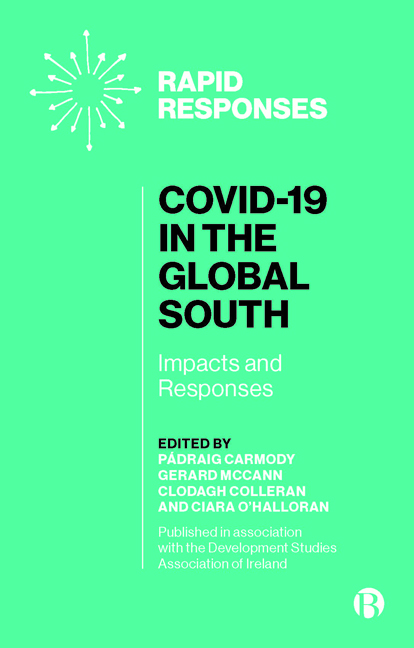12 - Psychosocial Implications and Programming Responses Against COVID-19 in Africa
Published online by Cambridge University Press: 23 March 2021
Summary
In January 2020, the World Health Organization declared the outbreak of the novel coronavirus disease, COVID-19, a Public Health Emergency of International Concern. In Africa, COVID-19 cases continue to rise rapidly across the entire continent. Implications of the COVID-19 public health response have exposed families, including children and youth, to multiple vulnerabilities. In Phase 1, lockdown, the economic and health impact of the infection, control and prevention (ICP) public health responses has been severe, and in the longer term may even be ‘catastrophic’ (The Lancet Global Health, 2020: 612). This chapter describes the psychosocial implications of COVID-19 for African communities, drawing on case studies from Uganda and South Africa.
The Ugandan government in particular showed leadership by responding quickly and decisively to the impending threat of COVID-19, drawing on preparedness responses developed in relation to other viral outbreaks such as during the Ebola crisis. In Uganda, lockdown restrictions were introduced on 18 March 2020 just before the first case of COVID-19 in the country was detected. Public and private transportation was banned, public gatherings were suspended, shopping malls were shut down and a 7 pm curfew was instigated. Anguyo and Storer (2020) noted that among the 80 per cent of ‘hand to mouth’ workers employed in the ‘gig’ economy and informal sector, COVID-19 responses significantly disrupted people's ability to earn money. South Africa also implemented tough public health measures. Citizens could only undertake essential trips to buy groceries or seek medical assistance, and in some cases lockdown was enforced by the use of rubber bullets (The Guardian, 2020). The social aspects of infection, control and prevention severely stressed collective coping responses through impact on trust and reciprocal support. An increase in social isolation and loneliness has also been a marked feature of the impact of COVID-19 lockdown restrictions. A recent South African survey carried out between 13 April and 14 May during lockdown by the University of Johannesburg and the Human Sciences Research Council (HSRC) found that 60 per cent of South Africans surveyed suffered from stress. The second most cited emotion was fear or feeling scared (45 per cent). Feeling depressed or irritable accounted for 29 per cent of responses, 18 per cent of respondents were angry and 12 per cent happy.
- Type
- Chapter
- Information
- COVID-19 in the Global SouthImpacts and Responses, pp. 127 - 138Publisher: Bristol University PressPrint publication year: 2020



